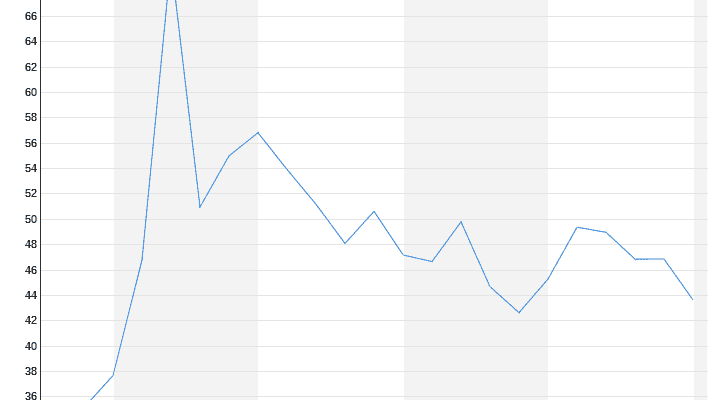Tuesday, August 31, 2021
Business model on the verge of collapse
Robinhood stock collapses
Robinhood’s business model has long been controversial and has already been banned in some countries. Now the US Securities and Exchange Commission also has “a ban on the table”. That sends the share of the trading app popular with small investors into the red.
The US Securities and Exchange Commission (SEC) has brought a complete ban on the PFOF business model in securities trading into play, sending Robinhood’s shares downhill. SEC chief Gary Gensler told the financial newspaper “Barron’s” that a ban on “Payment for Order Flow” (PFOF) was “on the table”. The SEC is reviewing the practice and could make recommendations in the coming months, the report said.
The trading app Robinhood, which is popular with small investors, then closed almost seven percent in the red. The US company generates more than three quarters of its sales through PFOF. The titles of the company Charles Schwab, which also uses the process, fell by almost 3.2 percent.
At PFOF, brokerage houses mostly forward their customers’ orders to large houses because they often offer better prices on their own over-the-counter trading platforms than if the order were placed directly on the stock exchange. In return, they receive discounts or payments from the major brokers.
PFOF has been controversial for a long time
PFOF has long been controversial with regulators because of potential conflicts of interest and is banned in Canada, the UK and Australia. Among other things, the SEC is investigating whether PFOF encourages brokers to forward orders not to the trading houses with the best prices, but to those with the highest PFOF payments.
Already at the end of July, analyst Konstantin Oldenburger from the online broker CMC Markets warned of Robinhood: “Robinhood is probably one of the hottest irons on the stock market that investors could burn their fingers on”. Because a “possibly unsustainable business model with highly volatile sales flows faces a huge customer base with the imagination for new business areas”.
The cheap broker, which paved the way to the US financial market for a younger generation of investors with its easy-to-use app, only went public at the end of July. The app advertises commission-free trading.
.
